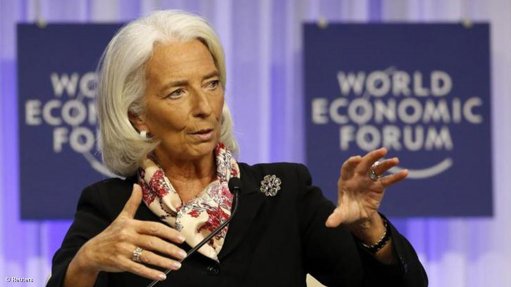
IMF MD Christine Lagarde
Photo by: Reuters
The rise of populism in developed countries was a concern but could be overcome with the right policies, Christine Lagarde, Managing Director of the International Monetary Fund (IMF) said on Wednesday.
Speaking at the Annual Meeting of the World Economic Forum in Davos-Klosters, Switzerland, on Wednesday, Lagarde said the rise of populist movements was a real concern but called for the implementation of policies to stem the tide.
“We now have an opportune moment to put in place policies that will help,” Lagarde told participants at the 47th WEF Annual Meeting.
Lagarde suggested more redistributionist policies, since “excessive inequality puts a brake on sustainable growth”.
She also urged a stronger social safety net, fiscal and structural reforms, and education to help both young people and mature workers prepare for the technological change that was disrupting the workplace.
Lawrence H. Summers, Charles W. Eliot University Professor at Harvard University in the USA, said that inequality was only one of the causes of rising populism.
He also cited “a desire for national unity and strength” and a sense among the middle class that it was no longer in control. “It’s a mistake not to recognise that the middle class in my country and in others is concerned that the government is not fighting for it.”
Summers urged not only more investment in infrastructure and education to provide support for the middle class, but also aggressive action against the tax and regulatory arbitrage that permitted many large companies and wealthy individuals to play by different rules.
Summers also noted that globalisation today was less about importing and exporting goods, and more about integrated global supply chains.
“We may be at a point where globalisation is ending,” said Ray Dalio, Founder, Co-Chief Executive Officer and Co-Chief Investment Officer, of US-based Bridgewater Associates.
Dalio cited the rise in populism, which he too attributed not just to the biggest wealth gap since the 1930s, but also to a sense among the middle class that governing elites did not represent them. “Populism scares me,” Dalio said, calling it “the number-one issue for market participants”.
But Dalio said that the world should not turn its back on globalisation and technological change, and said the question for the coming years was: “Can the middle be cohesive enough so that the extremes won’t be in control?”
Henrique Meirelles, Minister of Finance of Brazil, reminded participants that “globalisation is allowing massive numbers of people to get out of poverty. If you look around the globe, the net effect is extremely positive”.
He said that the current trends of middle-class anger were specific to certain developed countries, while many emerging countries such as Brazil had seen strong growth in the middle class over the last 20 years.
Brazil was currently seeing a reversal in this trend due to a recession, but Meirelles expressed confidence that his country was only suffering “a short-term problem” and “we are in a moment of establishing a middle class”.
“I don’t think we are exiting globalisation,” argued Pier Carlo Padoan, Minister of Economy and Finance of Italy. “We are entering a new stage.”
Padoan urged his fellow European policy-makers to listen to middle-class concerns for their own futures and those of their children. The right responses should include coherent strategies to face the challenge of migration and to generate business confidence. “In Italy, let me assure everyone that we are continuing our reform strategy, despite what you might be hearing.”
Padoan explained that, even without new legislation to attract headlines, implementation of recently passed reform laws was advancing.